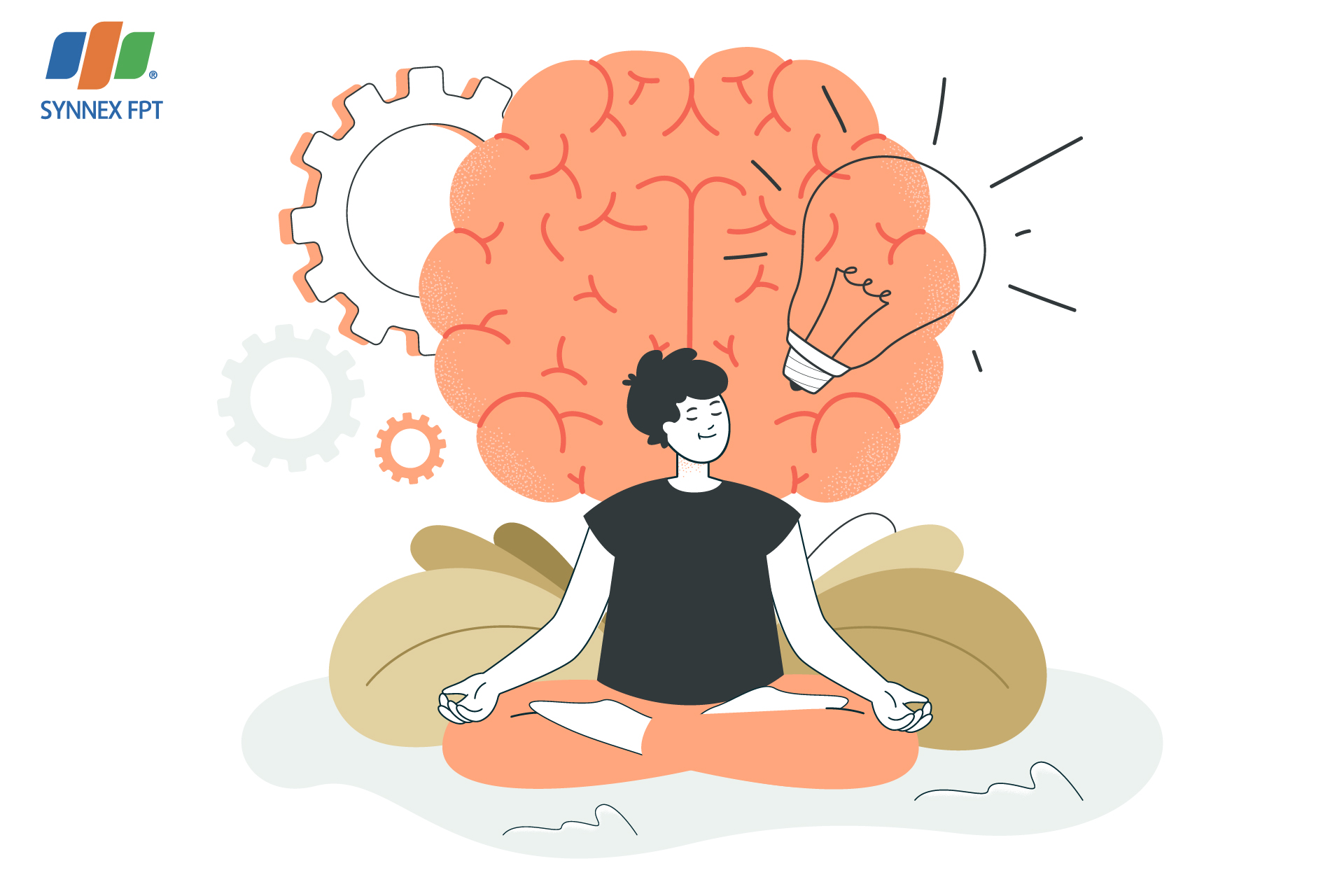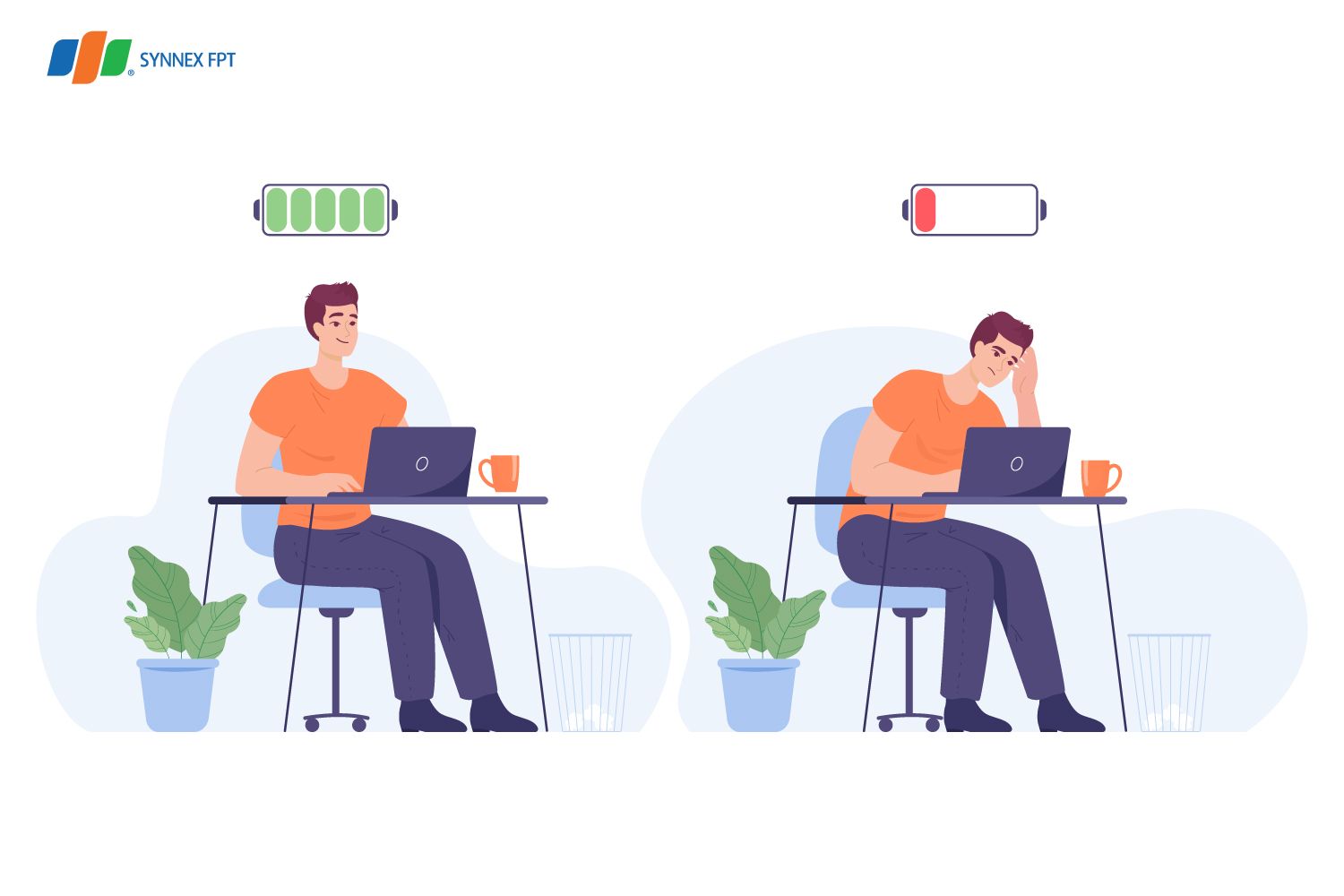Following the worldwide Covid pandemic epidemic, not only did people’s physical health suffer greatly, but also their mental health. Post-Covid memory impairment is one of them. Many people have expressed their concerns about how they believe their memory is deteriorating, that it is harder to focus, and that they are losing their temper more frequently than previously.
Also, according to some research, between 60 and 80 percent of Covid-19 patients report memory loss issues and poor thinking. But, we won’t discuss the origin and veracity of this occurrence in this article. Synnex FPT will instruct you on how to develop your memory and boost your career instead.
Why should we practice improving memory?
Nearly every aspect of your life, not just your profession, can benefit from having an excellent recall. Conversely, having a bad memory can interfere with both your short-term and long-term professional objectives.
The forms of memory utilized most frequently at work and how memory issues can distract you will then be discussed with Synnex FPT. We’ll also study memory-boosting techniques that can help you reach your professional objectives.
Types of memory commonly used at work
It sounds odd, doesn’t it? You previously believed that memory was simply that—memory, and it was not classified at all. As it comes to cognitive function and the capacity for each individual to store knowledge in the brain and access that information when necessary, the concept of “memory” is more nuanced than you might realize.
Despite the fact that memory can be viewed as a single “thing,” let’s now distinguish between the five primary categories of memory that you likely utilize regularly at work.
1. Working memory
A type of memory used to hold data and perform complex thinking tasks, organize information to solve difficulties, and finish challenging activities in the workplace, we need to have working memory. You can learn more efficiently and remember specifics of past issues with its assistance.
2. Semantic memory
Used to store knowledge, semantics, and other information about concepts, events, objects, people, etc. Our ability to comprehend and use language in the workplace, such as when reading and writing emails, reports, manuals, etc., is based on our ability to employ semantic memory. Facts and general knowledge will be stored in your long-term memory when you have this type of memory.
3. Visual-spatial memory
This sort of memory is used to store and reconstruct data regarding visuals, patterns, and the locations of things in the environment, as the name would imply. The foundation of how we search for and process visual information, from reading maps and creating diagrams to viewing blueprints, advertisements, or objects in the environment, is our visual spatial memory. work. Also, it is essential for picturing memories and aids with spatial memory.
4. Short-term memory
Information can be stored in this kind of memory for brief periods of time. This memory is utilized to recall crucial details including phone numbers, addresses, client names, and appointment times. By storing this transient “facts” in your brain, you may be confident that you will virtually always be able to access them.
5. Long-term memory
This kind of memory aids in the long-term storage of information and is frequently utilized to recall knowledge or fundamental facts pertaining to your line of work. The amount of information that can be stored in a person’s brain, including knowledge, facts, and processes, is virtually infinite. If your long-term memory is good enough, you can “reference” to this form of memory throughout your lifetime.
How a bad memory can affect your career
It’s simple to grasp how having a “bad memory” may damage your work and career after you considered the functions that memory aids you in on the job. The following are just a few difficulties that come with having a poor memory:
- You’ll struggle to pick up new skills: You won’t be able to comprehend the intricacies if you have a bad memory, whether it be regarding HR procedures, departmental procedures, or even your own tasks and responsibilities.
- You’ll have a harder time adjusting: You need a good memory to be able to adapt well to changing circumstances and to learn from past achievements and mistakes in order to succeed in today’s workplace.
- You’re not excellent at solving problems: You can develop, create, and find solutions with the use of your memory. You’ll be less likely to find solutions to issues at work or in your long-term career if you have a “faint” memory.
How to strengthen your memory to advance your career
Use these strategies to help you stay away from memory issues and perhaps even sharpen your brain so you can advance your job as quickly as possible:
- Sleep enough: It may be difficult to imagine how something as easy as going to bed early might assist you in “getting ahead” in your work. However numerous studies have demonstrated that getting enough sleep is linked to having superior memory. A good night’s sleep (usually 7 to 8 hours for adults) functions as a trigger for brain changes that enhance memory, according to a study from Beth Israel Deaconess Medical Center.
- Eat memory-boosting foods: According to Harvard Health some healthy meals, such as berries, fatty salmon, green leafy vegetables, walnuts, tea, and coffee, are associated to greater memory. It’s also vital to avoid eating specific foods that have been associated with memory problems, such as white bread, pasta, soft drinks rich in sugar, chips, and other fried foods. pipes, nitrate-containing meals, bacon, cold meats, and hot dogs.
- Prioritize exercise: Physical activity is another fantastic choice that can help maintain the health of your body and brain. Another study found that walking and aerobic activity boosted the size of the hippocampus, which is directly related to the storage of specific memories. spatial memory, long-term memory, and short-term memory.
- Meditate Regularly: According to studies published in the journal Behavioral Brain Research, a brief daily meditation practice of 13 minutes improves mood, focus, and memory. Eight weeks of meditation brought about the first memory advantages (but not after four). Meditation can also help reduce stress, which has also been shown to increase memory.
Stay Sharp, Be Successful
The essential takeaway from this is that there are simple ways to increase memory, but you need to be conscious of them and pay attention to them. Your memory performance can be significantly enhanced by practices like getting adequate sleep, eating well, staying active, and lowering stress with a little daily meditation. By maintaining your memory through four crucial deliberate behaviors, you’ll lay a solid groundwork for long-term professional success.







